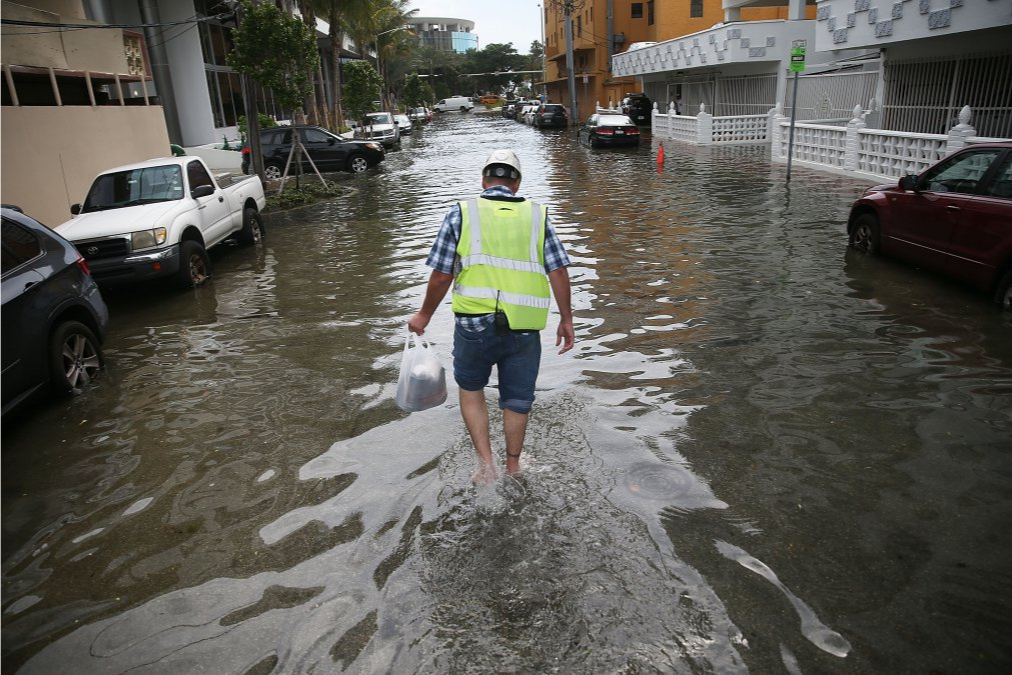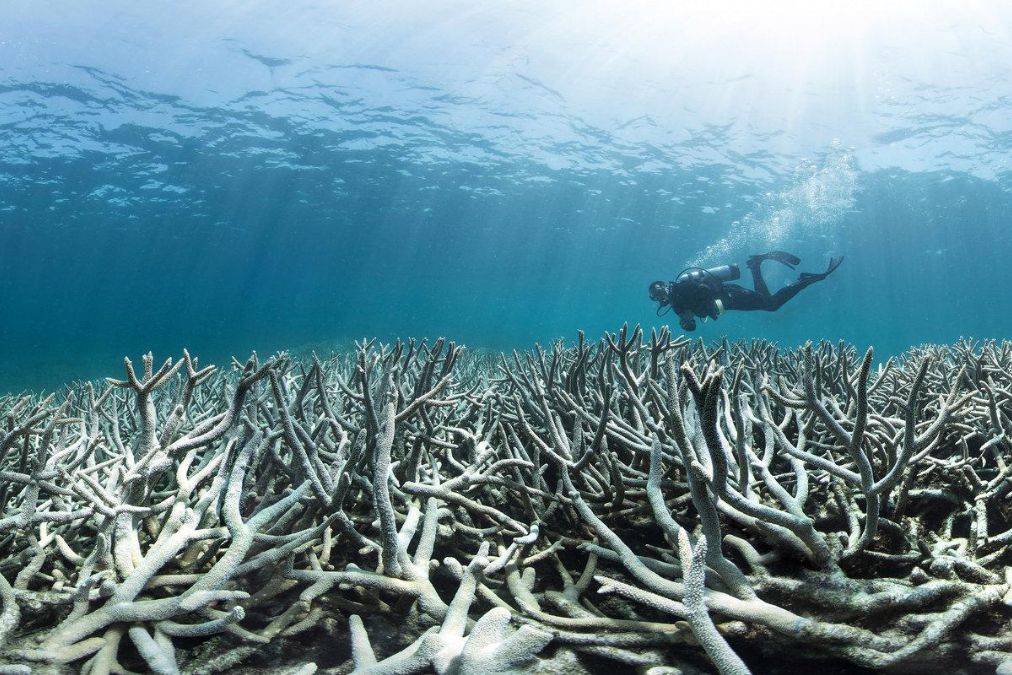Extreme heat events trigger a variety of heat stress conditions, from dehydration to heat strokes. Higher temperatures & respiratory problems are also linked. One reason is that higher temperatures contribute to the build-up of harmful air pollutants. Learn More
Understanding the Impacts of Heat

Health

Extreme Weather Events
As our global temperatures rise, so due to the temperatures of our oceans, which create bigger and stronger hurricanes. Hurricanes have a devastating effect on our lives, our health, economy, & biodiversity. In the U.S. hurricanes rank as the costliest U.S. weather and climate disaster. Learn More

Sea-Level Rise
The two major causes of global sea-level rise are thermal expansion caused by warming of the ocean & increased melting of land-based ice, such as glaciers & ice sheets. The oceans are absorbing more than 90% of the increased atmospheric heat associated with emissions from human activity. Learn More

Algal Blooms
The algae bloom is the result of a combination of factors, including the abundant nutrients washed in from surrounding agricultural lands, heavy winter rains and hot, calm summer weather. Algal blooms kill our biodiversity & have a devastating impact on our economy & tourism. Learn More

National Security
Climate change & extremes increase risks to national security through direct impacts on U.S. military infrastructure & by affecting factors, including food & water availability, that can exacerbate conflict outside U.S. borders. Droughts, floods, storm surges, wildfires, & other extreme events stress nations & people through loss of life, displacement of populations, & impacts on livelihoods. Learn More

Oceans
As temperatures rise, mass coral bleaching events & infectious disease outbreaks are becoming more frequent. Additionally, CO2 absorbed into the ocean from the atmosphere has begun to reduce calcification rates in reef-building & reef-associated organisms by altering seawater chemistry through decreases in pH (called ocean acidification). This has a devastating impact on our biodiversity, fishing industry, & economy. Learn More
A Climate Justice Lens
Climate disruptions disproportionately affect the most vulnerable in society, i.e. those with fewer resources or safety nets.
- For example, did you know that in Florida it is mandatory to have heat in affordable housing, but not a/c? In addition to that many people can not afford to turn their a/c on even if they have it because it’s simply too expensive.
- When extreme weather events hit, like hurricanes, not everyone can afford to evacuate. In addition to that, in the aftermath, without electricity, many people can not go back to work because their employers don’t have electricity, which means, they can not get a paycheck.
- Many people do not have a financial safety-net, and therefore, can not plan in advance for extreme weather events, like purchasing bulk food or materials to board their homes.
- Heat impacts our health, especially vulnerable are children, the elderly, and people that work outside. Many do not have health insurance.
- Specific to Miami, because of sea-level rise, many underserved communities are experiencing climate gentrification because they sit on higher ground, which is becoming a prime real estate.
You can learn more at the NAACP Environmental & Climate Justice page.
Lessons From Covid-19: Rebuilding Our Economy
Below are two articles from McKinsey & Company – a trusted advisor and counselor to many of the world’s most influential businesses and institutions, making the financial case for investing in a green economy.
Lessons from Covid-19: Nature

Below are some articles that showcase how nature & the quality of our air bounced back.
- Pandemic Before and After: Florida 2015-2019 versus 2020
- Coronavirus: Nature bounces back in Turkey under lockdown
- Venice’s Canals Are Beautifully Clear As Italy’s Coronavirus Lockdown Cuts Down on Water Traffic
- Pollution made COVID-19 worse. Now, lockdowns are clearing the air.